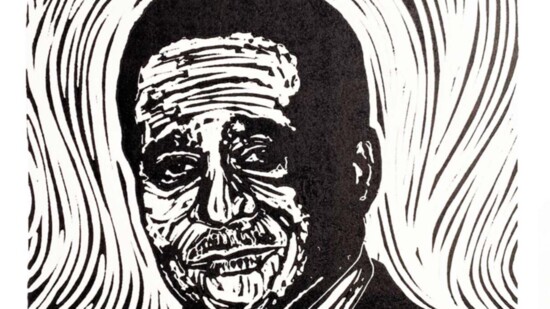From childhood, Arthur Davis Shores dreamed of becoming an attorney, but few institutions granted law degrees to black students. Born in an Alabama mining town in 1904, he graduated from Birmingham’s Industrial High School, Talladega College, and LaSalle Extension University, passing the Alabama Bar examination in 1937. Shores, a soft-spoken gentleman of deep Christian faith, became Alabama’s first black attorney to represent clients in court.
Affiliating with the NAACP, Shores worked with a team of attorneys in the field of civil rights, including the future Supreme Court Justice Thurgood Marshall. For the next 50 years, Shores served as a legal pioneer who dared to step into the white man’s court and defend the unjustly accused black man and woman.
In 1955, Shores served as co-legal counsel for African American student, Autherine Lucy, in her lawsuit against the University of Alabama for expelling her.
In February 1960, the Alabama grand jury issued an arrest warrant for Dr. Martin Luther King, Jr., charging him with filing fraudulent tax returns. Shores represented Dr. King, becoming his official Birmingham attorney and friend.
Shores assisted in the 1963 discrimination lawsuit that ended Alabama Governor George Wallace’s efforts to bar Vivian Malone and James Hood from attending the University of Alabama. Even while receiving regular death threats, these cases proved only a fraction of the Alabama civil rights cases Shores tried and won.
Birmingham’s racial tension continued to intensify, peaking in the spring of 1963. When Pastor Fred Shuttlesworth delivered an urgent plea for help, Dr. King and the Southern Christian Leadership Conference joined Arthur Shores in Birmingham.
On Good Friday, April 12, after numerous civil rights boycotts, sit-ins, and protests, police arrested and jailed Dr. King, placing him in solitary confinement for eight days. The small cell had no source of light, and held a metal-slatted cot with no mattress, and a toilet and sink. When eight local white ministers ran an ad in the Birmingham News referring to King as a troublemaker, King responded. In the dark cell, scribbling on newspaper edges and toilet paper, Dr. King wrote the 7,000-word “Letter from Birmingham Jail.” King secretly slipped the paper scraps through the bars to Shores and two other attorneys, the only ones allowed to visit him. The attorneys gave them to NAACP’s Wyatt Walker who pieced them together, typed the draft, and gave the American Friends Service Committee (Quaker) permission to print and distribute the infamous letter.
In 1969, Shores became the first African American elected to the Birmingham City Council, remaining in that seat for nine years. He also received an honorary doctorate from the University of Alabama.
When, on December 16, 1996, Arthur Shores died at age 92, he left the city of Birmingham a remarkable legacy. Birmingham honored Arthur Shores and his selfless work, naming Birmingham’s Arthur D. Shores Law Center Building in his honor. The building’s marker gives a well-deserved tribute: “Mr. Shores’ civil rights work on behalf of all Alabamians is his living legacy for our State. He not only was part of the change during the civil rights era, but he made it happen.”
